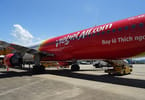Shamed by images of wealthy corporateers cavorting at the expense of ordinary people, US companies canceled an estimated US$1 billion worth of conferences in the first two months of this year and trimmed back on others.
Hoteliers are calling it “the AIG effect,” after the insurance company that took a public drubbing for spending freely on corporate perks despite its financial turmoil.
“Corporations don’t want to have to report lavish spending to the board of directors, even if it wasn’t really all that lavish,” said Donald Wise, an investment banker who specializes in hotels.
It all started with a kind of Marie Antoinette moment in September, when executives of AIG spent US$443,000 at the St. Regis Resort in Dana Point, just days after accepting an US$85 billion federal bailout.
Reports of the junket quickly dominated the news and became emblematic of the excesses that many believed had brought down the economy. Outrage grew, as people who might or might not understand credit default swaps easily envisioned fat cats eating fancy food, playing golf, and getting massages on their dime.
Hotels saw the effect right away. At the Mandalay Bay Resort & Casino in the business meeting mecca of Las Vegas, almost US$131 million worth of business events have been canceled so far this year, said Chuck Bowling, executive vice president. The Four Seasons hotel in Los Angeles has taken a 15 percent hit in its meeting business.
With bookings dropping and self-denial replacing conspicuous consumption, the AIG effect is battering a hospitality business that already was suffering from a slowdown related to the recession.
Nearly 200,000 travel-related jobs were lost in 2008, and an additional 247,000 will be cut this year, according to the Department of Labor. More than 20 percent of companies have canceled events because of recent media and political attention, according to the US Travel Association.
To win back business, Ritz-Carlton Hotel is offering to donate 10 percent of the cost of a conference held on its premises to charity. The hope is that the meetings will seem less self-indulgent to corporate watchdogs and boards of directors.
Laurence Geller, president of the company that owns the Ritz-Carlton Laguna Niguel in Orange County, and the Hotel Del Coronado in San Diego County, among others, described a mood of “fear and paranoia” among his customers.
Bookings at the 19 hotels owned by Strategic Hotels & Resorts are down about 20 percent, Geller said, and those customers who are still coming are worried about being perceived as spendthrifts. Some have even asked to have their company names removed from lobby signs directing people to events.
“It’s a fear of being outed in public,” he said.
The company’s hotel operators have laid off 1,250 people at 11 US properties, Geller said.
The downshift runs counter to the industry’s direction over the last several years when hotels upgraded deliberately to attract the lucrative junket business, adding yoga rooms and elaborate spas — and many made a point of adding “spa” and “resort” to their names.
Meetings brought in more than half of the annual occupancy of many resorts and are crucial to their survival, said Peter Yesawich, a hotel marketer. In 2007, business travel amounted to US$240 billion, according to the association, although how much of that was related to corporate meetings is unclear.
The US Travel Association estimates that the lodging industry lost US$1 billion worth of corporate meetings or incentive trips in January and February. In response, it has bought print and online advertisements.
It also put together what it calls a “war room,” where public relations representatives stand at the ready to respond to what they perceive as unfair criticism of business travel. Representatives have lobbied Congress and the White House to ease proposed restrictions on junkets for companies that accept financial aid from the federal government.
Their claim is that face-to-face meetings are important to business. And they say that hotel maids and other low-wage workers have been hurt by the slowdown in business travel.
“Our message is, ‘Hey, let’s tone down the rhetoric,'” said Roger Dow, president of the US Travel Association. “If you want to lose a million more jobs, just keep talking.”
Meetings, Dow said, have been unfairly vilified — just because of the easy symbolism.
“You cannot photograph a large salary or bonus, but you can take a photo of a golf course or a beachfront hotel,” he said.
Article from Los Angeles Times, By Roger Vincent
WHAT TO TAKE AWAY FROM THIS ARTICLE:
- Laurence Geller, president of the company that owns the Ritz-Carlton Laguna Niguel in Orange County, and the Hotel Del Coronado in San Diego County, among others, described a mood of “fear and paranoia”.
- The downshift runs counter to the industry’s direction over the last several years when hotels upgraded deliberately to attract the lucrative junket business, adding yoga rooms and elaborate spas — and many made a point of adding “spa”.
- Shamed by images of wealthy corporateers cavorting at the expense of ordinary people, US companies canceled an estimated US$1 billion worth of conferences in the first two months of this year and trimmed back on others.






















